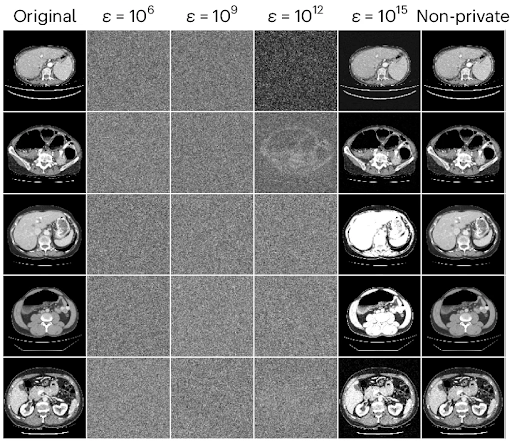Patient onboarding means registering and verifying new patients. It includes checking insurance, confirming identity, collecting personal details, and getting approvals before treatment. These steps usually take time and can have mistakes, causing delays and more work for staff. This may also cause money problems due to claim denials or late payments.
Recently, automated systems that check patient eligibility and verify identity have changed how healthcare providers handle this. These systems use technology like artificial intelligence, optical character recognition, biometric authentication, and real-time data connection. They make onboarding faster, reduce staff work, and improve accuracy and rules compliance. This article looks at how these automated systems help healthcare in the U.S., focusing on benefits for medical staff and IT managers.
Understanding Automated Patient Eligibility Checks
Checking insurance eligibility is important before any healthcare service. It makes sure the patient’s insurance is active, benefits are valid, and the plan covers the needed treatment. It also checks details like co-pays, deductibles, referrals, coverage dates, and network status. Correct eligibility checks help avoid unexpected costs for patients and reduce claim problems and billing mistakes.
With automated eligibility checks, providers can instantly confirm insurance status using real-time info from insurance companies and databases. These systems connect smoothly with Electronic Health Records (EHR) and practice systems using technologies like Electronic Data Interchange (EDI), APIs, or compliance modules.
Julie Clements, Vice President of Operations at OSI, explains that real-time eligibility (RTE) tools are very helpful during scheduling or registration. Early verification stops claim denials and late payments by catching problems sooner.
Automation reduces the need for manual researching and phone calls. It cuts down paperwork and stops errors caused by old or inconsistent information. These systems also keep payer data up to date, which helps prevent claim denials caused by outdated coverage.
Automated Identity Verification in Healthcare Onboarding
Along with checking insurance, confirming a patient’s identity is key to prevent fraud and protect personal information while following rules. Traditionally, identity checks were done by hand and in person, which was slow and risky.
Automated identity verification uses AI and machine learning plus technologies like Optical Character Recognition (OCR), facial recognition, fingerprint scanning, and biometrics. These can read data from IDs, passports, and driver’s licenses and check it against live databases and fraud lists.
Automation can cut onboarding time by up to 80%, says Cflow, a platform that improves patient verification steps. Faster onboarding helps keep patients happy and coming back. Studies show 89% of patients change providers if onboarding is poor, showing the need for better checks.
Automated identity checks also help meet rules such as HIPAA, AML, GDPR, and anti-terrorism laws. Built-in encryption, audit logs, and ongoing monitoring protect patient privacy.
How Automation Reduces Administrative Burden
Staff who manage medical offices know onboarding takes lots of time and effort. Doing eligibility and identity checks by hand wastes staff time, causes errors, slows processes, and leads to claim problems.
Automation helps by:
- Minimizing manual work: AI can do routine checks without human help, freeing staff for patient care.
- Increasing accuracy: Automated data reading and real-time checks stop typos and mistakes common in manual entry.
- Streamlining workflows: Systems connect well with existing EHR and billing software, cutting duplicate tasks and sharing data faster.
- Lowering costs: Less manual work means saving on staff hours and operational expenses.
- Reducing claim denials: Faster and correct verification lowers the chance of rejected claims and payment delays.
In one case, Momentum used AI identity and eligibility checks to speed up onboarding and cut overhead. Joanna Filipek, CEO of IYOGA LLC, said Momentum helped them launch their apps faster than other companies.
Impact on Patient Experience and Care Delivery
Automation not only helps staff but also improves patient experience. When verification is fast and correct:
- Patient wait times get shorter, so care can start quickly.
- Financial surprises go down because patients learn about co-pays and limits up front.
- Remote onboarding becomes possible, allowing digital checks without in-person visits. This supports telemedicine.
- Patients trust the healthcare provider more as processes are clearer and faster.
Jordan Kelley, CEO of ENTER, a revenue cycle platform, says real-time insurance checks cut paperwork, stop errors, and build patient trust.
Challenges Addressed Through Integration and Staff Training
While automation helps a lot, healthcare groups need to focus on proper setup and ongoing care of these systems:
- System integration: Automation must connect smoothly with EHR, billing software, and insurance databases. Standards like FHIR, HL7, and SMART APIs help data flow safely and quickly.
- Staff training: Regular training helps staff use new tools, keep data accurate, and follow up-to-date rules. Julie Clements notes that training reduces mistakes and helps teams keep up with changing insurance rules.
- Data quality: Collecting correct patient info is key. Wrong or old data can cause verification problems or fraud risks.
- Updating payer info: Insurance companies often change coverage rules. Keeping data current avoids claim rejections.
- Clear communication: Offices need good processes for communication between admin, billing, and patients to handle insurance questions and coverage quickly.
AI and Workflow Automation in Healthcare Onboarding
Artificial intelligence is important in making onboarding better. AI can analyze large amounts of data fast and accurately. Key AI features include:
- Optical Character Recognition (OCR): Turns scanned documents like IDs into digital text instantly.
- Biometric Authentication: Uses face, fingerprint, or other biometric data to confirm identity and reduce fraud.
- Fraud Detection: AI compares patient history, insurance info, and fraud lists to find suspicious data in real-time.
- Real-Time Eligibility Verification: Sends automatic requests to insurance databases to check coverage and co-pays immediately, avoiding invalid claims.
- Regulatory Compliance Monitoring: AI keeps track of rules like HIPAA and GDPR, logs audits, and signals risks to secure data.
- Process Automation: Platforms like Cflow let organizations design verification processes, automate approvals, and keep audit trails without manual steps. They can connect to EHR and billing systems.
Using AI and automation can improve tasks greatly. For example, Labplus cut medical testing times from days to minutes by adding AI workflow automation. This helps doctors give care faster and eases admin work.
Scalability and Support
As healthcare groups grow, patient checks and onboarding needs also increase. Automation systems must handle more work without losing speed or quality.
Momentum’s KYP solution shows how modular design allows adding more checks, insurance databases, and patients while keeping good service and rules compliance.
Vendors like Momentum, ENTER, and Cflow offer support that includes:
- Custom system setups to fit each organization’s needs
- Continuous monitoring and fixing to keep systems reliable
- Regular updates to follow new healthcare laws and insurance rules
- Staff training and tech help to get the most from the systems
This support helps healthcare groups keep working well and follow rules in the future.
Summary for U.S. Medical Practices and IT Management
Medical practice staff and IT teams in the U.S. gain much from automated eligibility checks and identity verification. Benefits include:
- Less administrative work by dropping manual tasks
- Better accuracy with fewer errors in patient and insurance data
- Faster patient onboarding, leading to happier patients
- Improved compliance with HIPAA, AML, and other rules
- Lower rates of claim denial and better revenue management
- Support for remote and telemedicine onboarding via secure digital checks
- Strong data security and fraud prevention
- Systems that grow with the organization
To get the best results, practices should choose vendors with good connections to EHR systems, ongoing compliance help, and flexible workflows. Training staff and clear communication inside the organization also matter.
Spending on automated systems helps U.S. healthcare providers cut admin work, speed up patient onboarding, and support fast, accurate care delivery in a complicated healthcare world.
Frequently Asked Questions
How does Momentum’s KYP solution automate patient eligibility checks and identity verification?
Momentum’s KYP leverages predefined modules that integrate with EHR systems, insurance databases, and healthcare platforms for real-time verification. This automation reduces manual work and administrative burden, improving onboarding speed and accuracy by seamlessly verifying patient eligibility and identity early in the process.
How does the KYP solution ensure compliance with regulations like HIPAA, GDPR, and HTI-2?
The solution incorporates data encryption, audit logging, and role-based access controls through predefined security modules. It adheres strictly to HIPAA, GDPR, and HTI-2 compliance standards ensuring patient data security throughout verification, minimizing breach risks, and maintaining regulatory compliance without requiring manual oversight.
How can KYP solutions help prevent identity fraud and ensure patient data accuracy?
By integrating with fraud prevention tools and cross-referencing multiple data points across EHRs, insurance databases, and third-party systems, the solution performs thorough and accurate identity verification. This reduces identity fraud risks and guarantees the integrity and security of patient records.
How does Momentum’s KYP solution integrate with existing healthcare systems for eligibility checks?
Momentum uses predefined modules compatible with standards like FHIR, HL7, and SMART APIs allowing seamless, secure integration with EHRs, insurance platforms, and other systems. This ensures efficient data exchange with minimal disruption to existing workflows.
Can Momentum’s KYP solution handle pre-authorization requirements for treatments and procedures?
Yes, it includes automated pre-authorization modules that integrate with insurance platforms to verify coverage and secure approvals quickly. This automation reduces delays, minimizes administrative tasks, decreases claim denials, and ensures timely patient care.
How scalable is Momentum’s KYP solution as a healthcare organization grows?
The solution is modular and scalable, capable of expanding to accommodate additional patients, eligibility checks, and system integrations without sacrificing performance, ensuring efficiency and compliance as organizational demands increase.
What kind of support does Momentum provide for integrating and maintaining the KYP solution?
Momentum offers full support including system integration, customization, ongoing maintenance, regulatory compliance updates, continuous monitoring, and troubleshooting to ensure smooth, secure, and compliant operations post-deployment.
What key features of Momentum’s KYP solution improve patient verification processes?
Key features include fast identity verification, real-time automated eligibility checks, pre-authorization automation, and interoperability with existing healthcare systems via standards like FHIR and HL7 to enhance efficiency and security.
How does pre-authorization automation impact patient care and administrative workflows?
Automated pre-authorization streamlines treatment approval by reducing delays, minimizing manual intervention, decreasing claim denials, and improving patient satisfaction through timely care delivery and reduced administrative burden.
Why is interoperability a critical aspect of Momentum’s KYP solution?
Interoperability ensures seamless integration with diverse healthcare systems and databases using industry standards, safeguarding data flow, improving verification accuracy, and enabling comprehensive eligibility checks across platforms without disrupting existing operations.
The post The role of automated patient eligibility checks and identity verification in reducing administrative burden and improving onboarding speed in healthcare organizations first appeared on Simbo AI – Blogs.











